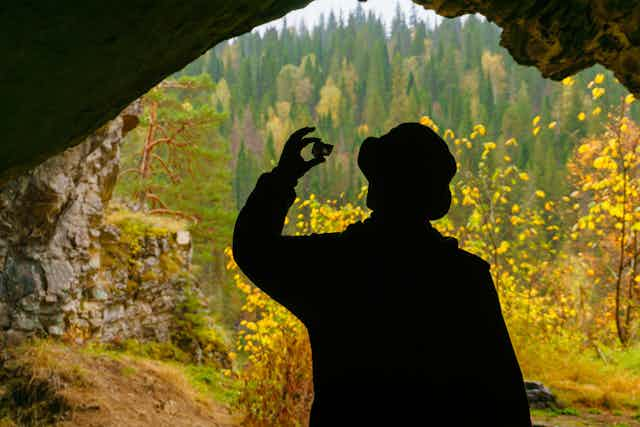When people hear we are geologists, we are often asked if we have found any oil lately. Sadly – and wrongly – the most common view of geology as a profession is that its primary role is in the discovery and extraction of fossil fuels.
But if we are to radically reduce emissions and move towards a low carbon economy, we’ll need geologists. Technologies such as wind turbines, solar panels or electric cars all require a wide range of natural materials that themselves are finite and often buried deep underground. By focusing on these materials, and the challenges of setting up all this new infrastructure, the discipline of geology can transition from being part of the climate problem to being part of the solution.
Geology is commonly misunderstood. It’s not all oil exploration nor even fossilised trilobytes – geologists are interested in a vast range of topics, from the birth of our planet through to the development of life and the moderation of the global climate through the past 4.6 billion years of history.
The Anthropocene is the most recent geological epoch. It represents the period in history when humans have had such a massive impact on the planet that our presence will be detected in the rock millions of years from now. It began sometime in the past few centuries – though the exact start date is still being debated – so in geological terms, the Anthropocene is still very young. Nonetheless, its origins are responsible for our current predicament.

The Industrial Revolution, which ultimately caused the transition to the Anthropocene, was fuelled by burning geological repositories of coal. Modern humans had effectively learned how to exploit reserves of the sun’s energy which had been locked below the surface for many millions of years in geological time.
Coal-driven growth then inexorably led to a growing reliance on other fossil fuel sources such as oil and gas. Alarmingly, 82% of the total cumulative use of fossil fuels has occurred since 1962.
The Earth’s geology is thus partly responsible, and the discipline of geology is generally viewed as part of the problem. This negative link may have contributed to a Europe-wide downturn in undergraduate admissions at universities. In England and Wales, for instance, the 1,180 students completing a degree in geology this year is down a third since just 2014 (1,830 students), while A-Level (high school) student numbers are also falling at a similar rate.
The recent surge in popular environmentalism through young activists such as the inspirational Greta Thunburg and the more radical Extinction Rebellion movement has, in our opinion, changed the way young people think about the environment and the possible careers they want to pursue. This is part of the problem facing the geology profession: its “dirty polluter” image is not attractive to the many young people who care deeply about the planet and want to pursue a career that does not harm it.
Part of the solution

However, in reality, both geology and geologists are an integral part of the solution. For instance, geology is responsible for all manner of natural resources that we use in our everyday lives. Copper is used to make electricity work and lithium is used to store energy in batteries.
To transition to a carbon-neutral economy (if that’s ever quite achievable), we need dramatically to increase the available resources of a variety of so-called critical raw materials. Wind and other green sources of energy require significant geological expertise to ensure structural stability together with the raw earth materials needed for construction and power.
In short, geology is part of the solution. This is why we urgently need to change the perception of the profession so that we can train more geologists to drive down our reliance on fossil fuels.
This cannot be achieved through a single action or a single body. There needs to be a “call to arms” to unite geologists along with a coordinated effort from industry, professional bodies, learned societies, and the education sector to change the way geology is perceived, away from the “dirty polluter” to “environmental guardian”. Given the declining student numbers and growing concern over the environment, geology’s association with fossil fuels and pollution represents an existential problem for the discipline.


